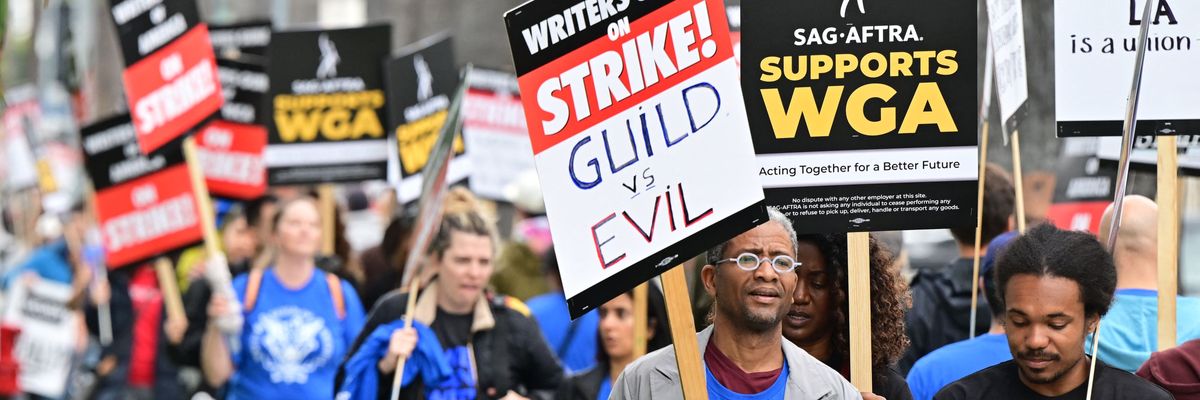Television writers who have been on strike for a month applauded a vote at Netflix's annual shareholder meeting on Thursday in which the streaming company's investors rejected an executive pay package that critics said exemplified the greed of Hollywood CEOs and their unfair treatment of the workers behind their lucrative content.
A majority of the shareholders voted against a pay package for executives including co-CEOs Greg Peters and Ted Sarandos as well as Netflix co-founder and board chair Reed Hastings.
Under the proposed pay package, Sarandos would earn up to $40 million in base salary, a bonus, and stock options, while Peters would take home $34.6 million.
"I wonder how it feels to have a group of people challenge your pay and worth,"
tweeted labor leader Lindsay Dougherty sardonically. Dougherty is secretary-treasurer of Teamsters Local 399 and represents more than 6,000 TV and film workers.
Meredith Stiehm, president of the Western branch of the Writers Guild of America (WGA), noted in the union's letter to studio executives last week that the shareholders were also asked to give retroactive approval to the company's 2022 CEO pay package, which amounted to $166 million.
"While investors have long taken issue with Netflix's executive pay, the compensation structure is even more egregious against the backdrop of the strike," wrote Stiehm, noting that in contrast to the executives' annual pay, "the proposed improvements the WGA currently has on the table would cost Netflix an estimated $68 million per year."
Thursday's vote was non-binding, and could be overturned by the company's board of directors, but writer Jelena Woehr tweeted that shareholders' rejection of Netflix's pay structure could ultimately pressure TV studios to meet the
demands of the WGA, including higher residual pay and better compensation for writers who are hired before a show has been given a greenlight for production.
The WGA West noted that executive pay packages rarely fail to get approval from shareholders.
"It's clear that investors don't believe this management team is worth $160+ million a year," the union
wrote.
Stiehm also wrote to Comcast shareholders last week, ahead of the company's annual meeting, urging them to reject a $130 million executive compensation package.
"Shareholders should send a message to Comcast that if the company could afford to spend $130 million on executive compensation last year," she wrote, "it can afford to pay the estimated $34 million per year that writers are asking for in contract improvements and put an end to this disruptive strike."

